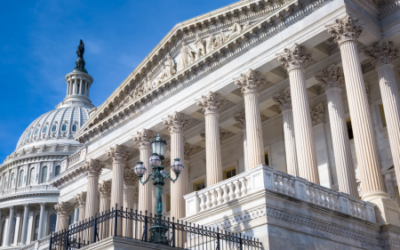Recognizing that two heads really are better than one, governmental officials nationwide are taking the very old adage to the extreme as they work toward “smart city” status.
In what is already a major trend, cities are partnering with private-sector businesses, corporations, educational organizations, civic groups, private individuals and non-government organizations. The partnerships or Smart Cities Alliance then work together in planning, designing and implementing innovative smart cities projects that will promote sustainability and improve the quality of life for citizens.
One of the first such alliances was launched by the Colorado Smart Cities Alliance. The group focused on issues such as transportation, public housing and environmental quality. The goal was to bring together leaders from a variety of private- and public-sector jurisdictions to develop and institute ways to cost-effectively manage and improve the areas of focus.
The initiative was statewide and the impetus was partly because of the state’s population explosion, which experts say could result in more than 3 million new residents moving to the state by 2050. The alliance quickly attracted the attention of a number of major cities in the state, including Boulder, Colorado Springs, Denver and Fort Collins.
The cities were joined by several research partners, including two federally funded laboratories. A state technology association that connects public organizations, academia and the private sector is also on board and the University of Colorado is the alliance’s academic partner. A private-sector technology company was named to serve as technology advisor for the alliance to help design and pilot projects undertaken by cities.

Using experiences and successes from other smart cities projects, the city hopes to create a plan for implementing smart cities innovations that can be replicated throughout the city. More than three-dozen partners in the public, civic, private and academic sectors of the city and 20 city departments participate in the alliance.
Earlier this month, the Dallas Innovation Alliance released a year-end case study of its Smart Cities Living Lab. In one four-block corridor in downtown Dallas, nine smart city projects were implemented. One LED lighting project resulted in a 35 percent energy reduction indicating that millions in savings are possible if the city moves forward to integrate LED bulbs in all of its current 85,000 lights.
In another project, large amounts of city data were analyzed and with actions taken, the project area realized a 13 percent increase in pedestrian traffic flow in the corridor, netting local businesses a 12 percent increase in revenue.
As a result of smart city competition nationwide, a guidebook by the city of Columbus, Ohio on smart city initiatives is now available. Columbus was awarded a $40 million grant when it was named winner of the U.S. Department of Transportation’s Smart City Challenge two years ago. The playbook includes articles, webinars, case studies, best practices and other smart cities implementation topics.
Columbus officials say that funding and finding a starting point are where everything begins. Next, city leaders must decide which smart city initiatives will result in the greatest benefits for their communities. Interestingly enough, the willingness to share best practices, innovative ideas and creative advice and guidance has been available in abundance for city officials.
The “smart city” trend is growing quickly and there is no doubt that there will be many more collaborative alliances in the very near future.
Strategic Partnerships, Inc. is your leading source for PPP News. Sign up for our free weekly e-newsletters to ensure you never miss out.






